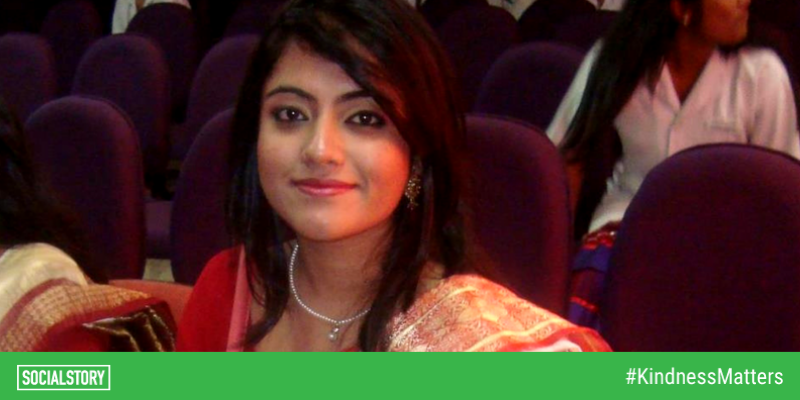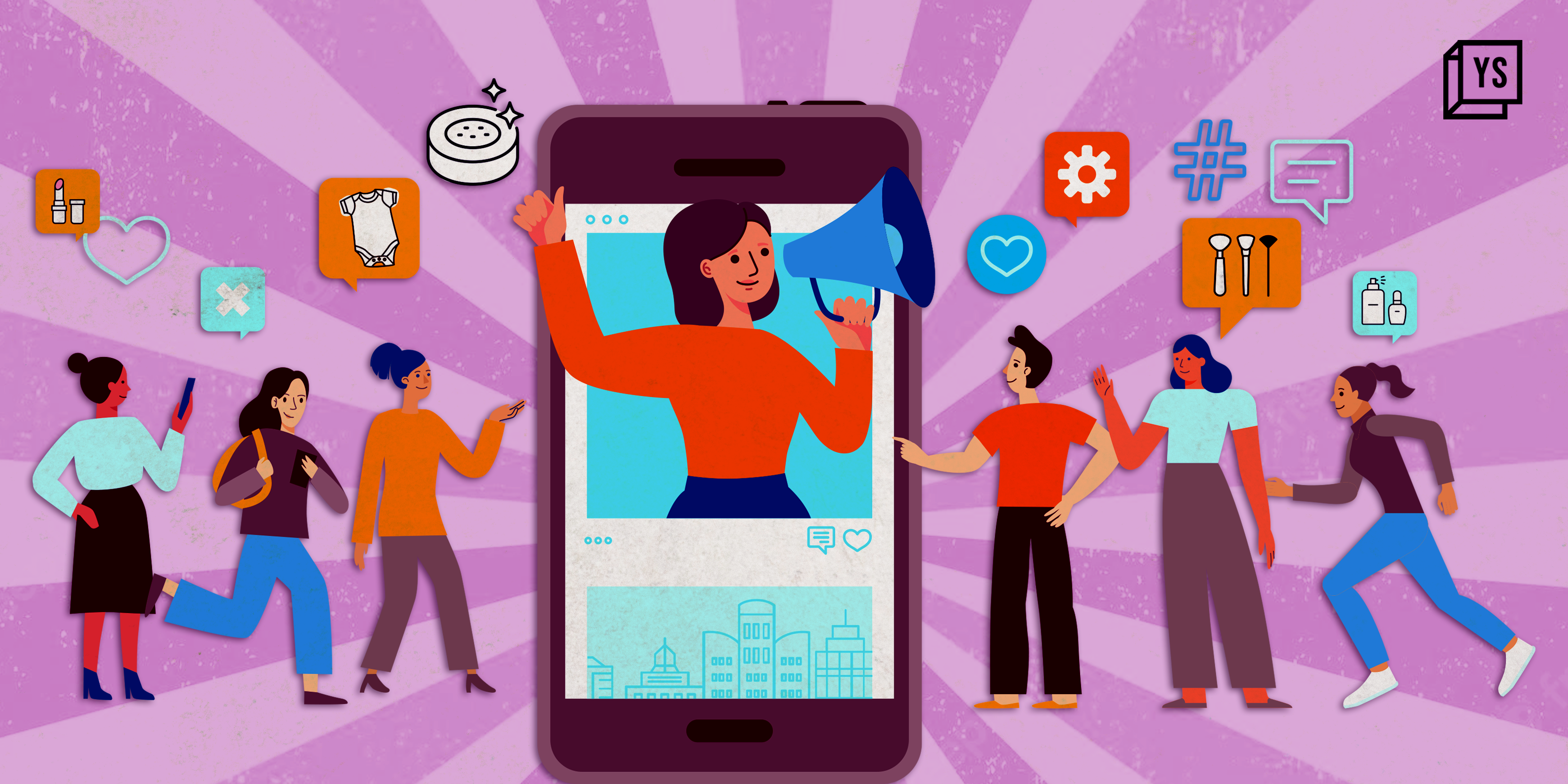Meet the 24-year-old doctor who is taking cancer prevention measures to rural India
India will have the world’s largest rural population by 2050, and Dr Priyanjali Datta’s Aaroogya is democratising preventive healthcare to combat breast cancer till the last mile.

In the village of Milana in Meerut, 42-year-old Bano Rani was terrified of getting a health checkup and cancer screening done. The mammoth cost always deterred her, but her declining health meant she couldn’t afford to ignore it anymore.
“My neighbours told me that a check for breast cancer requires a lot of money. I didn’t even go as it cost nearly Rs 8,000,” Bano Rani recalls.
In another district, Baghpat, Kusum, 27, was not allowed to discuss her health problems with anyone. Despite an MA degree, she listened when her husband told her that her health concerns would be ridiculed and she would bring shame to the family if she stepped outside their home in Khaprana village.
Further away in western Uttar Pradesh’s Rehatna village, Geeta, 32, recalls the nine harrowing years when her mother was being treated for ovarian cancer at Guru Tegh Bahadur Hospital. While medical awareness remained poor in her village, the fact that women were not encouraged to venture outside their home even to attend a medical camp made things difficult.
Geeta says, “One day, there was a medical camp in my village, but my husband didn’t let us to go as we are not allowed outside. However, the camp team members knocked at our door and asked for some time to talk to me and other women in the house. They were doctors; some were recording on a mobile phone. They started asking us questions about family health history.”

“Eventually, they were surprised when I told them about my mother. I said my grandfather also suffered and passed away due to breast cancer. They immediately counselled me for a screening and ultrasound as I did not know that a history of ovarian cancer can also put you at risk of breast cancer,” Geeta adds.
Hundreds of similar stories echo across villages in India, highlighting the lack of medical facilities and awareness. Health concerns often go neglected, often due to high costs, societal rules, and lack of accessibility.
It was to mitigate these challenges that Dr Priyanjali Datta, 24, founded the bootstrapped Aaroogya, a door-to-door healthcare facility that has helped 5,00,000 women across Delhi-NCR region, Haryana, and North Eastern states, including West Bengal.
The beginning
Founded in 2017, Aaroogya aimed to help spread awareness about the “triple negative” type of breast cancer, a rare molecular subtype of the disease, which is more difficult to treat and particularly affects younger women.
“In India, eight out of 10 women do not survive for more than five years of treatment due to late diagnosis. The societal taboo in our country – the body shaming, unawareness, myths, shyness and most importantly, ignorance - are by far the most common reasons for late diagnosis,” Dr Priyanjali explains.
Priyanajali, along with Dr Dhruv Kacker, co-founded Aaroogya to bridge the “large gap” between high-end disease prevention and cure existing in rural India’s healthcare. Their holistic approach includes real-time survey in Tier IV rural India, digital data collection, data analytics, and implementation of tele-consultation with early mobilisation of patients for early detection.

Her passion to work for the rural poor started when her mother was diagnosed with a rare pre-cancer blood condition.
“I used to be happy and strong in front of her, but then one day I just started crying – randomly on roads, shops, everywhere. That was the day I decided to create a meaningful concept to fight a common yet dreaded disease that is snatching away so many mums from their kids. I had lost my grandma too due to cancer. As a kid with eyes full of dreams, I had promised her that I would save the world from cancer,” she remembers.
Ronald Van Het Hof, Joint Managing Director of Women on Wings, and Dr Pramod K Julka, Former Dean of AIIMS and Padmashri awardee, 2013, are Aaroogya’s mentor and principal advisor respectively.
Getting started
Aaroogya started its movement in Shillong, Meghalaya, Dr Priyanjali’s native place. North East India has the highest cancer incidence index in the country due to higher consumption of tobacco, areca nuts, and occupational hazards (inhalation of cadmium and arsenic).
The Indian Council of Medical Research (ICMR) has found that India is likely to have more than 17.3 lakh new cases of cancer and over 8.8 lakh deaths due to the disease by 2020. Breast cancer is the most common type of cancer occurring in India, followed by lung cancer and cervical cancer. The council estimates that there were 1.5 lakh new cases of breast cancer in 2016 – more than 10 percent all new cancer cases in 2016.

“Healthcare is a misnomer in the country. The enormous gap between disease management in tertiary centres due to sheer ignorance gives us shocking statistics of 8/10 woman not surviving a disease like breast cancer. In Scandinavian countries and the States with highest incidences of breast cancer, the survival rate is 9/10 due to early detection,” Priyanjali adds.
Targeting the vulnerable
The team identifies a “vulnerable location” and chooses a particular village based on availability and access to primary healthcare facilities. They then choose another village with “exactly” the opposite conditions to study influencing factors between the two in the same district.

The Aarogya teamPriyanjali’s team comprises doctors and volunteers who go door-to-door and visit every family in a village. They speak to the women about the disease, and teach them breast self-examination, while also clinically examining them.
“Aaroogya means free from all illness. Also, if you look at the logo, the two ‘o’ represents the breasts of a woman, which should be free from disease. The young girl with the symbolic spectacles in the logo is our mascot; she propagates the fight against breast cancer at a young age, denoting she is aware and not ignorant,” Priyanjali explains.
Mapping health status
In their quest to help early detection of breast cancer and facilitate secondary prevention and treatment, Aaroogya is also mapping the “current health status” of rural India. They create a 50-page report based on their survey and field activities, which is then analysed and worked upon by collaborators to help provide better facilities in villages.
Survey questions related to general health awareness, the frequency with which people see a doctor, and questions related to their lifestyle—daily food habits, smoking, alcohol consumption, exercise habits, stress factors, and hobbies.

One of the biggest challenges the Aaroogya team faces is lack of access and response from women in Tier IV areas because “women in these areas are still not allowed to step outside their home or even go to school”.
In Uttar Pradesh, Aaroogya started a project called “Touching million lives till last mile”, in January this year; it has already created awareness amongst 1.37 lakh women.
“I have just one vision: India’s rural population by 2050 will be half of global rural population. So that is where Aaroogya’s potential lies,” she adds.
The future: telemedicine
Aaroogya has expanded its services to West Bengal, Delhi-NCT, Haryana, and Uttar Pradesh. With collaborations with Central and State governments, local administrations, private primary healthcare service providers and their units (UNDP, WHO, UNICEF, and other non-profit organisations), the team hopes to reach 90,000 underprivileged women in 600 Tier IV rural locations in the next 60 months.

The not-for-profit is supported by Gramin Healthcare, Abraxas Lifestyle, and Eximious Health.
“We believe that telemedicine is the most viable option for patients in villages to gain access to doctors in metro cities. However, limited internet accessibility, resources, and the expertise required to develop a robust telemedicine device for use in these villages is a huge barrier,” Priyanjali shares.
Her team is currently developing an IoT-based device, which will self-record the vitals of a patient and also work in “offline” mode.
“People cannot imagine the life these rural women lead. Their priceless smiles and belief in Aaroogya bringing them a permanent health solution drives our team,” Priyanjali concludes.
(This story is part of the #KindnessMatters series, a partnership between YourStory and UNESCO MGIEP)











